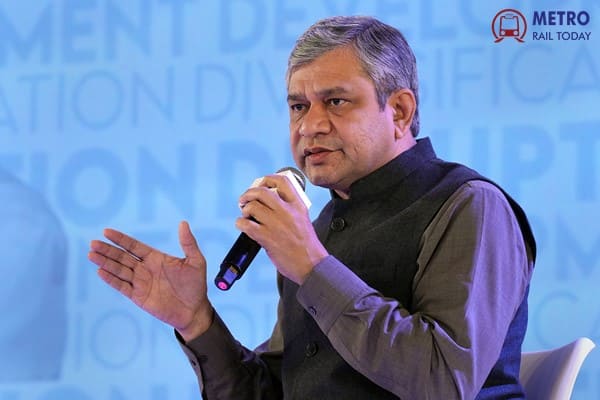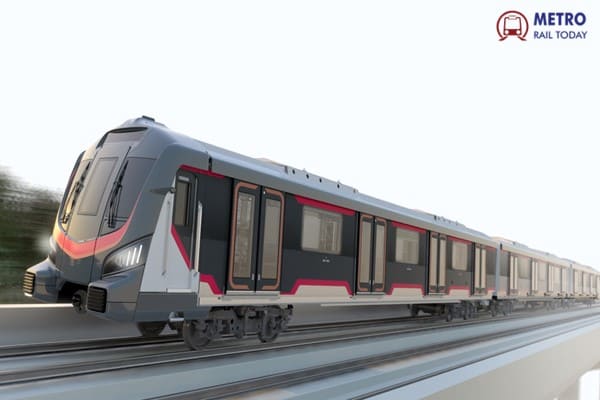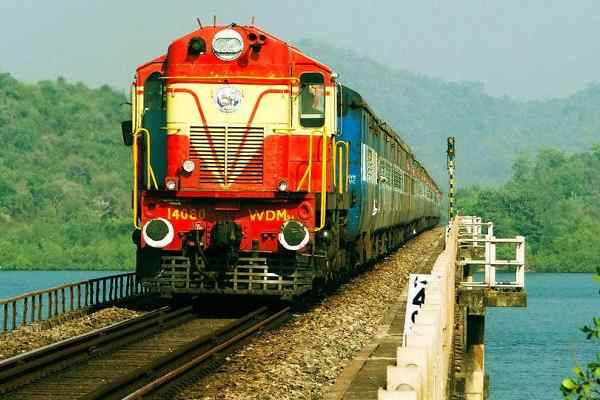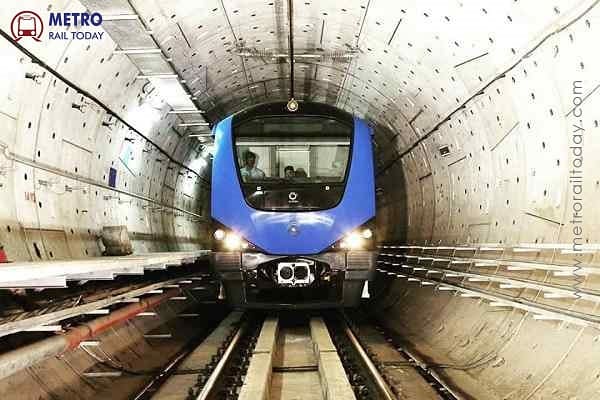 CMRL achieves second Tunnel Breakthrough at Thirumayilai for Chennai Metro Phase 2 Corridor 4
CMRL achieves second Tunnel Breakthrough at Thirumayilai for Chennai Metro Phase 2 Corridor 4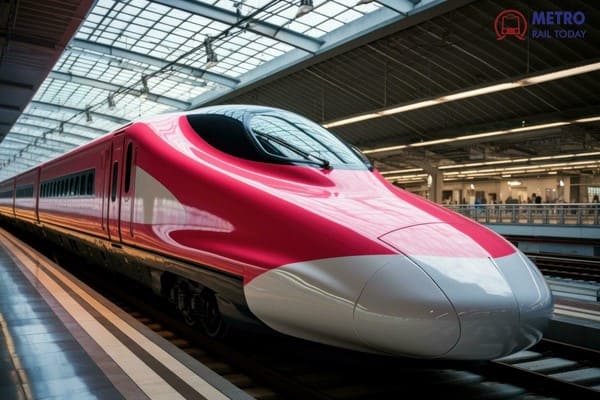 NHSRCL invites Single Tender from BEML for Bullet Train Rolling Stock Package
NHSRCL invites Single Tender from BEML for Bullet Train Rolling Stock Package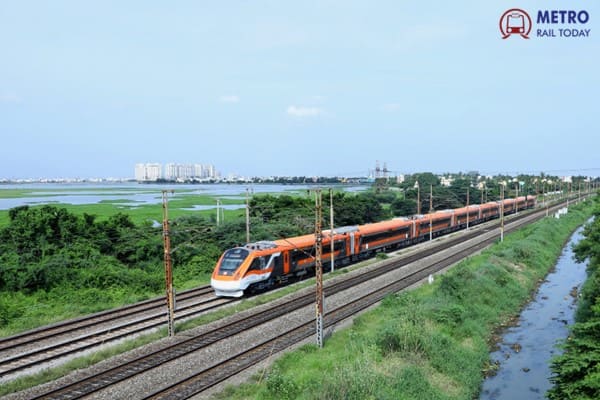 Railway Minister reviews progress of Ahmedabad–Dholera Semi High-Speed Rail Project
Railway Minister reviews progress of Ahmedabad–Dholera Semi High-Speed Rail Project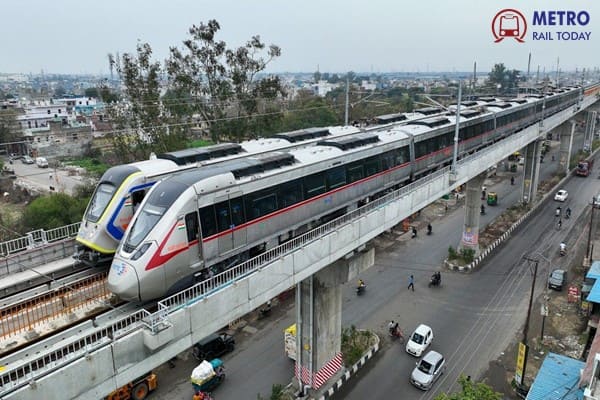 National Planning Group reviews key Rail & Metro projects under PM GatiShakti
National Planning Group reviews key Rail & Metro projects under PM GatiShakti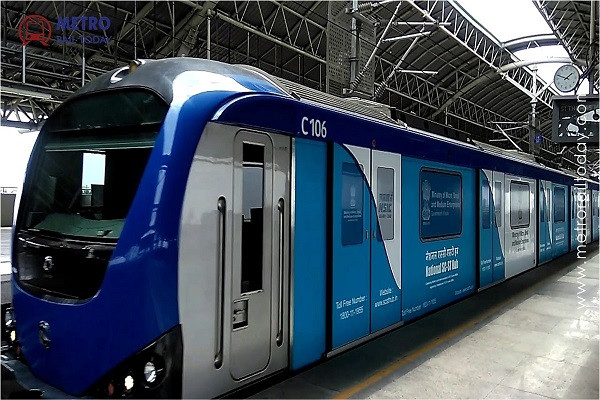 CMRS approves Driverless Metro Operations on first stretch of Chennai Metro Phase 2 Corridor 4
CMRS approves Driverless Metro Operations on first stretch of Chennai Metro Phase 2 Corridor 4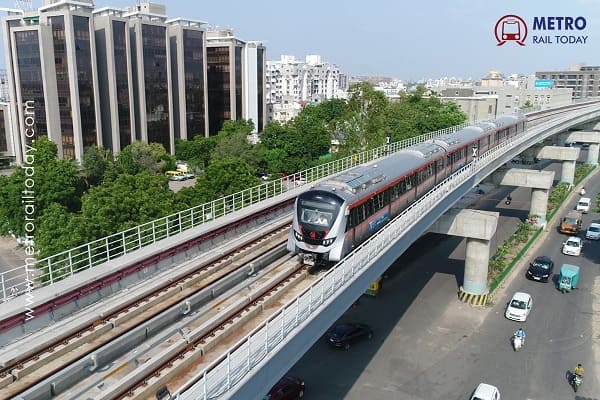 J Kumar Infraprojects completes Final Tunnel Breakthrough for Surat Metro Phase 1 Project
J Kumar Infraprojects completes Final Tunnel Breakthrough for Surat Metro Phase 1 Project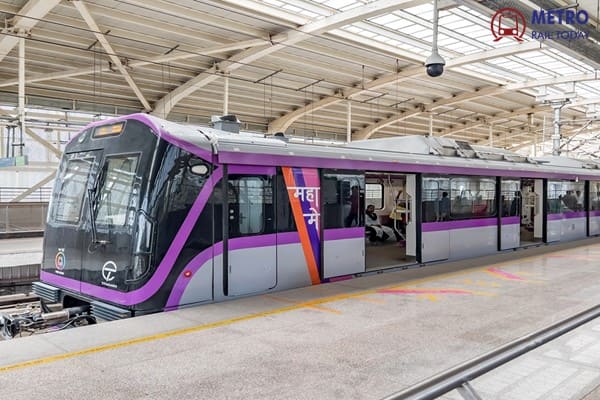 Apurvakriti Infrastructure awarded Ballastless Track Contract for Pune Metro Reach-1 Extension
Apurvakriti Infrastructure awarded Ballastless Track Contract for Pune Metro Reach-1 Extension SAM India Builtwell bags first ₹222.76 Crore Civil Contract for Delhi Metro Phase V
SAM India Builtwell bags first ₹222.76 Crore Civil Contract for Delhi Metro Phase V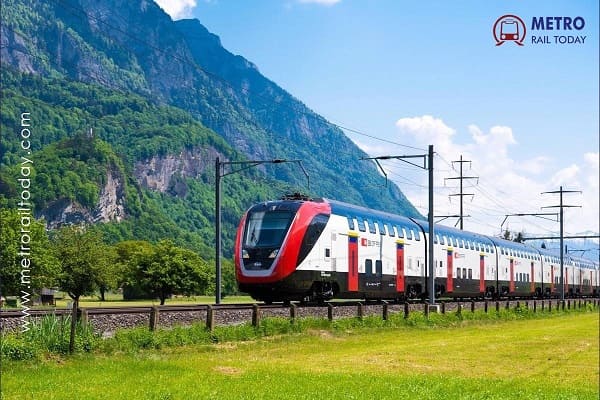 HRIDC conducts Investors Pre-Bid Meeting for Haryana Orbital Rail Corridor
HRIDC conducts Investors Pre-Bid Meeting for Haryana Orbital Rail Corridor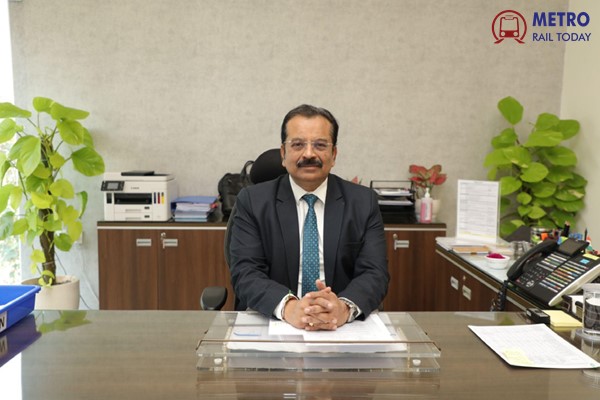 NCRTC Chief Shalabh Goel appointed as General Manager of Central Railway
NCRTC Chief Shalabh Goel appointed as General Manager of Central Railway
India’s First Hydrogen-Powered Train Rolls Out for Trial Tests
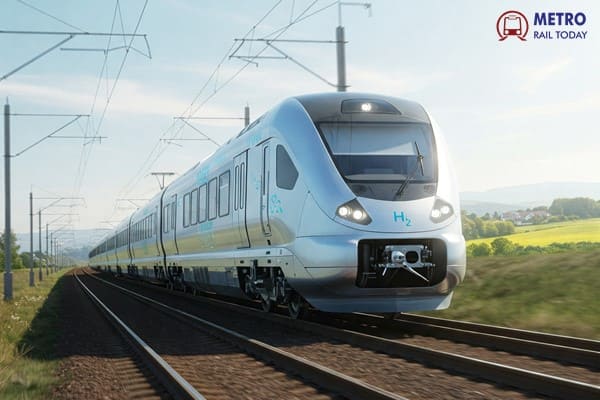
New Delhi, India (Metro Rail Today): In a major milestone for India’s green mobility ambitions, the country has successfully tested its first hydrogen-powered train coach, marking the beginning of a bold transition toward zero-emission rail transport. Developed by the Integral Coach Factory (ICF) in Chennai, the prototype coach underwent its initial trial run earlier this week and is part of Indian Railways' larger plan to introduce hydrogen-fuelled trains into the national network.
As per official sources, the complete hydrogen-powered train is set to be rolled out by August 31, 2025, making India one of the few countries in the world to adopt hydrogen fuel cell technology for railway propulsion. The hydrogen train will be built by retrofitting a conventional Diesel Electric Multiple Unit (DEMU) with hydrogen fuel cells and battery storage systems. The clean-energy train will emit only water vapor as exhaust, eliminating carbon emissions entirely.
Designed for short-distance passenger operations, the train will initially run on the Jind-Sonipat section in Haryana, as part of a pilot project. The use of hydrogen fuel cells will drastically reduce greenhouse gas emissions, cut dependence on fossil fuels, and improve air quality in urban and semi-urban corridors.
The ICF has partnered with top Indian engineering firms and is supported by the Ministry of Railways to develop the indigenous hydrogen propulsion technology, aligning with the National Hydrogen Mission and India’s net-zero emission targets for 2070. Once operational, the hydrogen train is expected to save up to ₹2.3 crore annually on fuel costs per route, while significantly cutting noise and particulate pollution.
The introduction of hydrogen trains follows global trends, with countries like Germany and France already operating such trains commercially. However, India’s approach focuses on cost-effective retrofitting, rather than designing entirely new trainsets, which significantly lowers project costs and accelerates deployment.
Commenting on the strategic significance of this innovation, Mrs. Mamta Shah, MD & CEO of Urban Infra Group, said, “India’s hydrogen-powered train project is not just about innovation—it’s about redefining the future of railways. This green leap aligns perfectly with India’s decarbonization goals and sets a powerful example for sustainable mass transit. Hydrogen technology has the potential to revolutionize regional and semi-urban rail networks, especially in areas where electrification is challenging.”
With Indian Railways being the world’s fourth-largest rail network and one of the country’s largest energy consumers, the shift toward hydrogen-powered trains marks a transformative chapter in India’s clean energy journey. As testing progresses and technology matures, India aims to scale this model across other routes, moving steadily toward a fossil-free rail ecosystem.
The hydrogen train is a key component of Indian Railways’ mission to become net zero by 2030, supported by other green initiatives including electrification, solar-powered stations, and bio-diesel adoption. Together, these efforts reflect a strong national resolve to lead in clean transportation and climate resilience.





